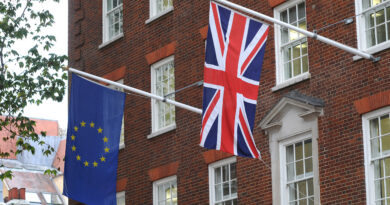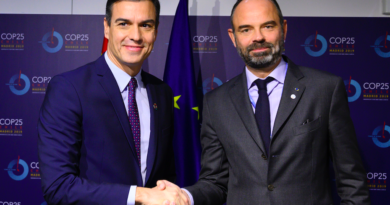Six things the UK study on EU migration already tells us
The UK Home Secretary, Amber Rudd, has commissioned a study to assess the costs and benefits of migration from EU countries to the UK. The research, prepared by the Migration Advisory Committee (MAC), will cover the period from 2000 to the present day. The aim is to look at the current situation to design the immigration system that will apply when country leaves the European Union (EU).
Businesses and oppositions have criticised the timing of the report, as one year has passed since the EU referendum and the research will be ready only in September 2018, six months before the Brexit date. Even now, however, the letter commissioning the report and an article by the Home Secretary on the Financial Times reveal some important information. Here are 6 points emerging from the documents.
1. The experts are back. “Britain has had enough of experts,” claimed Brexit supporters during the EU referendum campaign. As a result, the debate on EU migration and free movement has allegedly been based on “anecdotal evidence.” Now an independent body of experts will look at the reality.
“The MAC will look at the overall picture, moving beyond individual bits of anecdotal evidence and allowing us to make policy on high-quality evidence.” – Amber Rudd on the Financial Times, 26 July 2017.
2. Businesses have spoken. It may be a coincidence, but the report was announced the week after Prime Minister Theresa May chaired the first meeting of a business group advising on Brexit. The group includes major companies, as well as representatives of the Institute of Directors, the British Chambers of Commerce, the Confederation of British Industry (CBI) and the Federation of Small Businesses. These organisations have frequently warned the government about the risks of a poorly managed Brexit in terms of attracting talent from the EU.
3. The UK is brutally open about its intentions. There is no attempt to mask that the UK wants to choose the people to allow in the country purely on the basis of economic interests. The study will investigate “advantages to focussing migrant labour on highly skilled jobs or across the entire skills spectrum,” to determine the “type” and the “volume” of future migration. Just like goods, it will be a matter of identifying which sectors are most important. This may seem normal to Brexit supporters focusing of national interests, but it looks inhuman to “workers” who see themselves as part of a Union of people. Jonathan Portes, professor of economics and public policy at King’s College London, noted that “migration is not just a matter of the UK choosing migrants; migrants have to choose us.”
4. It will be a battle against time. The Home Secretary promises there won’t be a cliff-edge after Brexit. The government plans to “set out some initial thinking on options for the future immigration system” this autumn. The new system will have to be ready well in advance of Brexit to allow people, businesses and border control offices to prepare. But the study will be available only in a year time and the risk is that great part of the discussion will still be based on “anecdotal evidence” (see point 1).
5. The study will not deliver what people think. In a context where people can move freely, it is legitimate to expect that not everyone moves for work. The pulling factors can be culture, values (e.g. a more liberal society) or simply, love. People who moved for reasons different than work might not have given priority to the career. Similarly, people who moved for work might have lost their position over the years. And others might have found unexpected opportunities by knowing the country. The circumstances of a life not constrained by visas and work permits are endless, and the research won’t explore them.
6. There is no interest for British citizens in the rest of Europe. The research will focus on EU nationals in the UK. But there are also some 1.2 million Britons residing in other EU countries. Many are people working and living with their families. A large proportion are pensioners who also used the opportunity to move freely across the continent. It might have been fairer to assess the costs and benefits of free movement in both directions, rather than focusing on one-way economic migration.
In fact, the UK is not the only country in Europe where migration is a hot topic and there is a drive to tighten EU’s free movement rights. The UK research could have been useful to understand what works and what doesn’t for free movement in Europe, if it weren’t so narrowly unilateral.
Claudia Delpero © all rights reserved.
Photo courtesy Pixabay.




